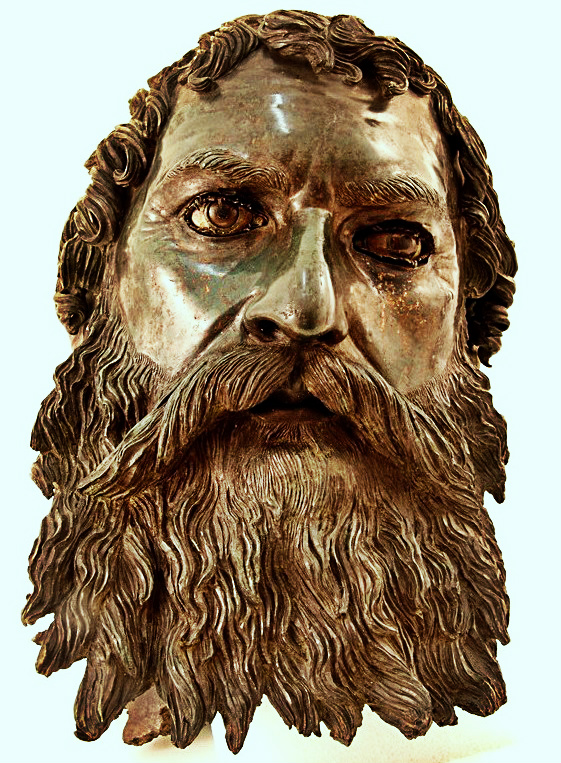|
Tranipsi
Tranipsi or Tranipsai () is the name of a Thracian tribe.Anabasis by H. G. Dakyns, 2006, , page 321: "... his sway extended over the Melanditae, the Thynians, and the Tranipsae. Then the affairs of the Odrysians took ..." They are mentioned by Xenophon. References See also *Thracian tribes This is a list of ancient tribes in Thrace and Dacia () including possibly or partly Thracian or Dacian tribes, and non-Thracian or non-Dacian tribes that inhabited the lands known as Thrace and Dacia. A great number of Ancient Greek tribes live ... Ancient tribes in Thrace Thracian tribes {{Ancient-Thrace-stub ... [...More Info...] [...Related Items...] OR: [Wikipedia] [Google] [Baidu] |
Thracians
The Thracians (; ; ) were an Indo-European languages, Indo-European speaking people who inhabited large parts of Southeast Europe in ancient history.. "The Thracians were an Indo-European people who occupied the area that today is shared between Thrace, north-eastern Greece, Romania, and north-western Turkey. They shared the same language and culture. There may have been as many as a million Thracians, divided among up to 40 tribes." Thracians resided mainly in Southeast Europe in Present (time), modern-day Bulgaria, Romania, North Macedonia, northern Greece and European Turkey, but also in north-western Anatolia, Anatolia (Asia Minor) in Turkey. The exact origin of the Thracians is uncertain, but it is believed that Thracians like other Indo-European speaking groups in Europe descended from a mixture of Proto-Indo-Europeans and Early European Farmers. Around the 5th millennium BC, the inhabitants of the eastern region of the Balkans became organized in different groups of Indi ... [...More Info...] [...Related Items...] OR: [Wikipedia] [Google] [Baidu] |
Xenophon
Xenophon of Athens (; ; 355/354 BC) was a Greek military leader, philosopher, and historian. At the age of 30, he was elected as one of the leaders of the retreating Ancient Greek mercenaries, Greek mercenaries, the Ten Thousand, who had been part of Cyrus the Younger's attempt to seize control of the Achaemenid Empire. As the military historian Theodore Ayrault Dodge wrote, "the centuries since have devised nothing to surpass the genius of this warrior". For at least two millennia, it has been debated whether or not Xenophon was first and foremost a general, historian, or philosopher. For the majority of time in the past two millennia, Xenophon was recognized as a philosopher. Quintilian in Institutio Oratoria, ''The Orator's Education'' discusses the most prominent historians, orators and philosophers as examples of eloquence and recognizes Xenophon's historical work, but ultimately places Xenophon next to Plato as a philosopher. Today, Xenophon is recognized as one of the gr ... [...More Info...] [...Related Items...] OR: [Wikipedia] [Google] [Baidu] |
Thracian Tribes
This is a list of ancient tribes in Thrace and Dacia () including possibly or partly Thracian or Dacian tribes, and non-Thracian or non-Dacian tribes that inhabited the lands known as Thrace and Dacia. A great number of Ancient Greek tribes lived in these regions as well, albeit in the Greek colonies. Tribes Thracian Certain tribes and subdivisions of tribes were named differently by ancient writers but modern research points out that these were in fact the same tribe. The name ''Thracians'' itself seems to be a Greek exonym and we have no way of knowing what the Thracians called themselves. Also certain tribes mentioned by Homer are not indeed historical. * Agrianes * Apsynthii * Astae,The Thracians 700 BC-AD 46 (Men-at-Arms) by Christopher Webber and Angus McBride, , 2001, page 11: "After the battle, 10,000 Thracians drawn from the Astii, Caeni, Maduateni and Coreli occupied each side of a narrow forested pass ..." they appear in the 2nd century BC to 1st century BC * ... [...More Info...] [...Related Items...] OR: [Wikipedia] [Google] [Baidu] |
Ancient Tribes In Thrace
Ancient history is a time period from the beginning of writing and recorded human history through late antiquity. The span of recorded history is roughly 5,000 years, beginning with the development of Sumerian cuneiform script. Ancient history covers all continents inhabited by humans in the period 3000 BCAD 500, ending with the expansion of Islam in late antiquity. The three-age system periodises ancient history into the Stone Age, the Bronze Age, and the Iron Age, with recorded history generally considered to begin with the Bronze Age. The start and end of the three ages vary between world regions. In many regions the Bronze Age is generally considered to begin a few centuries prior to 3000 BC, while the end of the Iron Age varies from the early first millennium BC in some regions to the late first millennium AD in others. During the time period of ancient history, the world population was exponentially increasing due to the Neolithic Revolution, which was in full prog ... [...More Info...] [...Related Items...] OR: [Wikipedia] [Google] [Baidu] |




